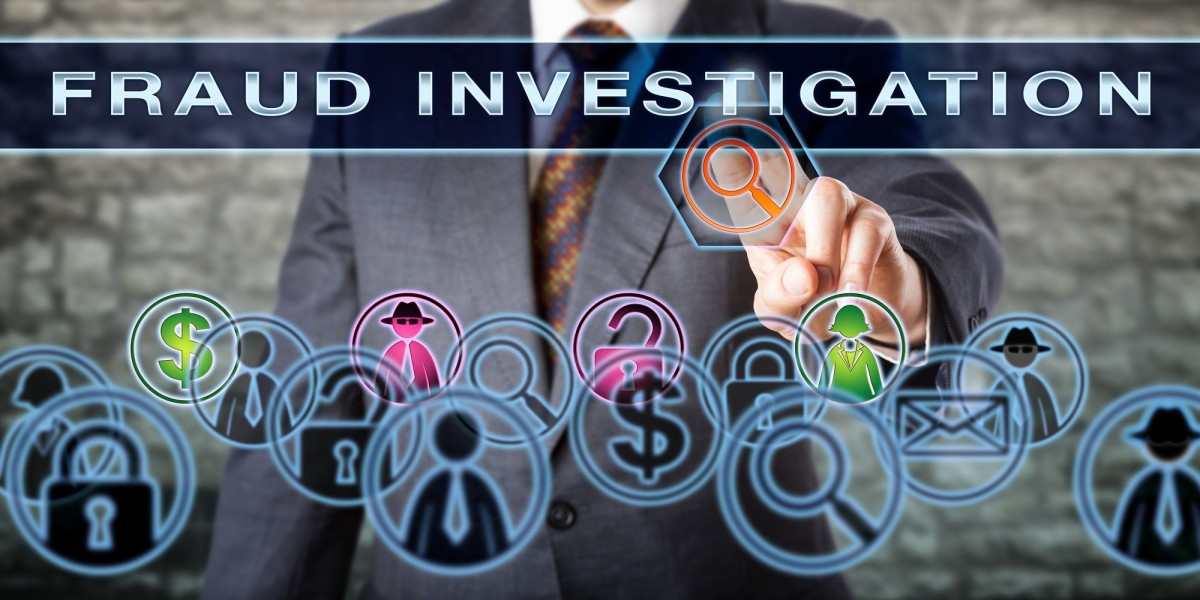In today's complex business environment, having a skilled financial fraud investigator on your team can be the key to protecting your business from hidden threats. Financial fraud investigators specialize in detecting, analyzing, and addressing various forms of financial deception that can severely impact a company’s profitability, reputation, and stability. With fraud becoming increasingly sophisticated, understanding the role of these experts can help businesses preempt and address potential risks, ensuring stronger financial integrity and operational security.
The Role of a Financial Fraud Investigator
A financial fraud investigator is responsible for examining potential fraudulent activities within an organization, its transactions, or its interactions with third parties. Whether the fraud is internal, involving employees, or external, involving vendors, customers, or competitors, these experts dig deep into the financial records, processes, and systems to uncover hidden inconsistencies and red flags.
Key responsibilities of a financial fraud investigator include:
- Data Analysis and Pattern Detection: By analyzing financial data, fraud investigators look for unusual patterns that may indicate deceit, such as repeated irregular transactions or abnormal expense claims.
- Reviewing Internal Controls: They assess the robustness of a company’s internal controls to identify vulnerabilities that could be exploited.
- Forensic Auditing: Through detailed forensic analysis, investigators track financial records and transactions to piece together how fraud might have occurred.
- Reporting Findings and Recommendations: After completing their investigation, these specialists provide management with a detailed report, including findings, the scale of any fraudulent activities, and recommendations to prevent future incidents.
Signs Your Business Might Need a Financial Fraud Investigator
Financial fraud often goes unnoticed until it’s too late. Here are some common signs that might indicate the presence of fraud in your organization and suggest the need for a financial fraud investigator:
- Unexplained Financial Discrepancies: Unaccounted expenses, missing funds, or sudden decreases in profitability may indicate suspicious activities.
- Irregular Financial Transactions: Large or repetitive transactions that lack clear business justifications could signal fraud.
- Deviations from Normal Procedures: Employees circumventing established protocols or unauthorized access to sensitive financial information can indicate potential internal fraud.
- Employee Behavior Changes: Employees involved in fraud may exhibit behavioral changes, such as increased secrecy or unwillingness to take time off, for fear their schemes will be discovered in their absence.
By addressing these issues early with the help of a financial fraud investigator, businesses can take proactive steps to mitigate risks.
Types of Fraud a Financial Fraud Investigator Can Help Detect
Financial fraud takes many forms, and a trained investigator is equipped to detect various types, including:
- Asset Misappropriation: This is the most common type of fraud, involving theft of cash or assets. It can include skimming, embezzlement, or using company funds for personal purchases.
- Financial Statement Fraud: Manipulating financial records to present a misleading view of a company’s financial health, often to attract investors or secure loans.
- Payroll Fraud: This includes “ghost employees” on the payroll, falsified overtime claims, or unauthorized raises.
- Vendor and Billing Schemes: Employees or external actors may engage in fraudulent activities such as overbilling, duplicate billing, or creating fake vendors to siphon funds.
- Insurance Fraud: Some businesses face false claims for workers’ compensation or other insurance-related frauds.
A financial fraud investigator applies specialized techniques to uncover these schemes, providing insight into the nature and extent of the fraud, and helping companies implement stronger controls to prevent recurrence.
How a Financial Fraud Investigator Conducts an Investigation
A financial fraud investigation is a systematic process that involves several stages. Understanding how investigators approach this task sheds light on their thoroughness and the value they add to a business.
Preliminary Assessment: This stage involves reviewing initial evidence and identifying the potential scope of fraud. Investigators determine whether there are sufficient grounds to proceed with a full investigation.
Gathering Evidence: At this stage, investigators collect and examine documents, digital records, and transaction data. They may interview employees or third-party vendors to gather additional context.
Analysis and Detection: Using analytical tools and forensic techniques, investigators identify patterns and anomalies in the financial data. They apply advanced data analysis techniques to detect inconsistencies that could indicate fraud.
Documentation and Reporting: Investigators compile a detailed report that includes findings, evidence, and an assessment of the fraud’s financial impact. They also make recommendations on preventive measures.
Collaboration with Legal Authorities: If the fraud investigation reveals criminal activities, the investigator may work with law enforcement to build a case against the perpetrators.
Benefits of Working with a Financial Fraud Investigator
Hiring a financial fraud investigator brings numerous benefits to your business, including:
- Enhanced Financial Security: By detecting fraud early, companies can avoid financial losses and damage to their reputation.
- Preventive Strategies: Investigators help implement anti-fraud policies and controls, such as regular audits, financial checks, and staff training on fraud prevention.
- Legal Protection: In cases where fraud has occurred, a thorough investigation can provide legal documentation and evidence, potentially helping businesses recover losses and prosecute offenders.
- Improved Employee Morale: Addressing fraud builds trust within the organization, as employees see that unethical behavior is not tolerated. This can lead to a more ethical workplace culture overall.
Preventing Fraud: Tips for Strengthening Internal Controls
While a financial fraud investigator is invaluable for detecting fraud, companies can take proactive steps to reduce fraud risk. Consider these practical measures:
- Implement Strong Internal Controls: Regularly review and update your internal controls, such as requiring multiple levels of authorization for significant transactions.
- Regular Audits and Reviews: Conducting frequent audits can reveal inconsistencies before they escalate into major issues. Independent reviews, whether by internal teams or external auditors, add a layer of oversight.
- Segregation of Duties: Avoid assigning conflicting responsibilities to a single employee. For example, the person handling payments should not be responsible for verifying transactions.
- Training and Awareness: Educate employees about fraud risks, including how to identify and report suspicious activities. A well-informed team is a first line of defense against internal fraud.
- Anonymous Reporting Channels: Implementing secure, anonymous channels for reporting fraud can encourage whistleblowers to report concerns without fear of reprisal.
Conclusion
In today’s increasingly complex business environment, a skilled financial fraud investigator is essential for safeguarding a company’s assets and reputation. From detecting subtle signs of deception to implementing robust preventive measures, financial fraud investigators offer invaluable services to businesses facing potential fraud risks. For companies serious about financial integrity, investing in professional fraud investigation not only helps in uncovering hidden threats but also fosters a secure, transparent work environment. Taking steps now to detect and prevent fraud can save your business from significant financial and reputational harm in the long run.










